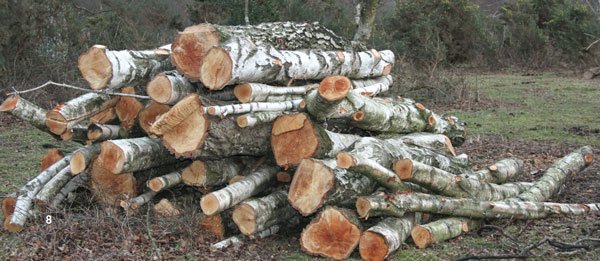
estovers [e-stoh-verz] ExamplesWord Origin plural noun Law.
- necessaries allowed by law, as wood and timber to a tenant or alimony to a spouse.
Origin of estovers 1250–1300; Middle English Anglo-French, noun use of Old French estovoir, estover to be necessary ≪ Latin est opus there is need Examples from the Web for estovers Historical Examples of estovers
Common of estovers is the liberty of taking the necessary wood for a house or farm from another’s estate.
Various
It would be strange to my purpose to discuss the details of common of estovers, of turbary, or of fishery.
Paul Vinogradoff
The various kinds of estovers were thus known as house-bote, cart or plough-bote, hedge or hay-bote, and fire-bote respectively.
Encyclopaedia Britannica, 11th Edition, Volume 9, Slice 7
Various
Moreover, the statutes have never enabled an inclosure to be made against commoners entitled to estovers or turbary.
Encyclopaedia Britannica, 11th Edition, Volume 6, Slice 7
Various
British Dictionary definitions for estovers estovers pl n
- law a right allowed by law to tenants of land to cut timber, esp for fuel and repairs
Word Origin for estovers C15: from Anglo-French, plural of estover, n use of Old French estovoir to be necessary, from Latin est opus there is need
 Liberal Dictionary English Dictionary
Liberal Dictionary English Dictionary